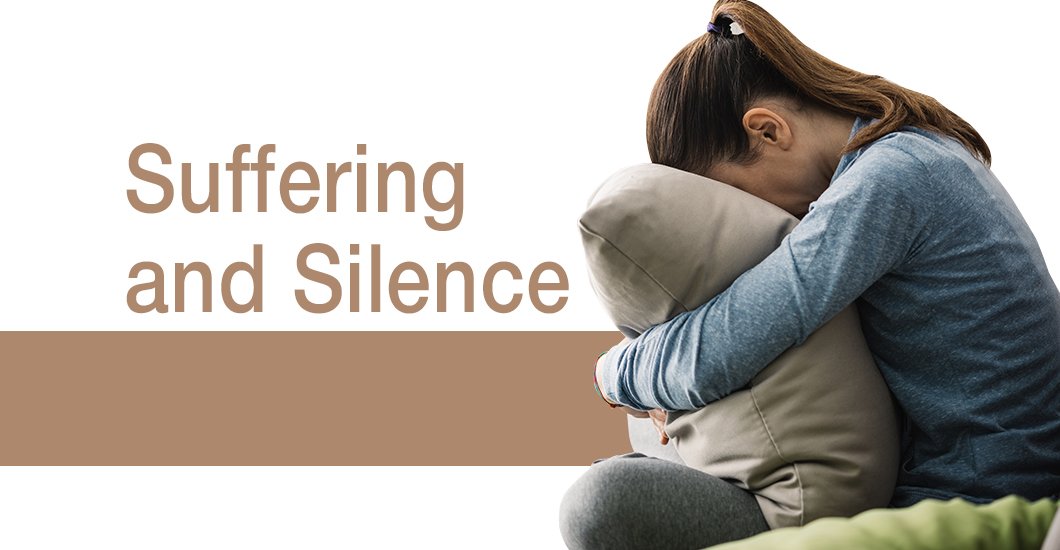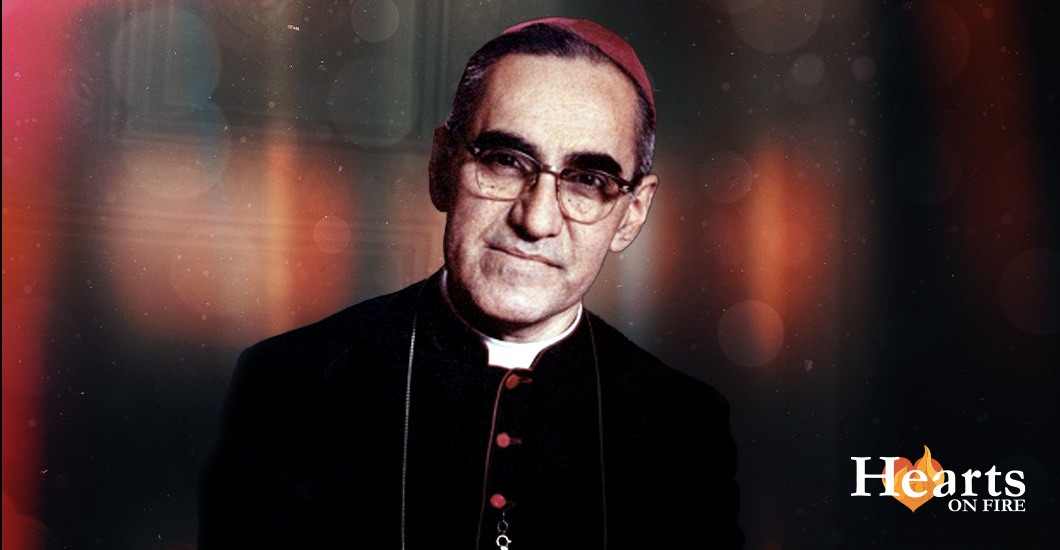Trending Articles
Suffering and Silence
What is God’s Answer to the Problem of Suffering and Pain?
There are good, intelligent and true answers that we can gather from philosophers, scholars, saints and Doctors of the Church. A lot of those answers can feed the mind and when it is not us or someone we love who is suffering, we will find our intellectual appetites satisfied with those classic responses to the problem of pain.
In the abstract, when we are not suffering, it is a lot easier to see why a good and all-powerful God would allow evil, pain and even death. For example, God allowed that fire down the street because He gave us the gift of free will. Free will means that people can abuse their freedom by being irresponsible and failing to regularly check their smoke alarms. Even though the building burned down, which is bad, it created an opportunity for a lot of people to rise to the occasion and act heroically. That is good, right? By allowing it, God created space for good to win over evil. Something like this might forever change the future for those involved. It could have a ripple effect down to people’s grandchildren. It serves as an example to lots of other people who will now more regularly check their smoke detectors.
This wake-up call would therefore prevent other fires from happening. More than that, is it not the case that great tragedy has the potential to turn people back to God? We suddenly and sincerely start praying for other people. We might even realize that we have neglected our spiritual life and this event makes us ask some really serious questions about the things that matter most.
It is a lot easier to see your way through the woods when you are safe, comfortable, only thinking about the journey and merely looking at a map. It is a whole different story when it is dark, lonely and you are actually lost. Do not get me wrong, maps and intellectual answers are really important, but when it is personal and when it is painful is it really enough?
When it comes to suffering, these right answers are in fact right but they are not really enough. That is why we still cry out to God with our “Why?” We beg. We plead. We bargain. We get mad. We say things like, “Why did you allow it God? Why did You not stop that from happening? What is the point of all of this?” We ask these kinds of questions as if we really just want an answer. However, try imagining what would happen if God actually showed up. Imagine if He strictly responded to your question of why and gave a very clear, direct response? Then what?
Would we, as Dr. Peter Kreeft, Boston College philosophy professor, points out, really be satisfied with any rational explanation to our questions about suffering? Even if it is God’s reason—which is the best possible reason from the best possible source—would that not stop Him from leaving us with even more questions? Would we not, much like a child to a parent, ask, “But why that?” Would not every answer lead to another string of questions? If He indulged us and gave more answers, would we not just go on asking questions? Could this be a sign that we want something more than rational answers, no matter how often we demand them? Maybe what we are longing for is not just a something but a ‘someone’. Maybe the God, who knows us better than we know ourselves, knows this as well. Maybe that is why He does not often respond to our questions, especially when we are suffering.
A classic example comes right from the Bible in the book of Job. Job, a good man who honors the Lord, suddenly finds everything—his success, wealth, family and health—taken from him. The story opens with God directly acknowledging Job’s faithfulness and proceeding to allow his life to fall apart. By the end of the story, Job, although broken and beat, refuses to “curse God and die.” He refuses to let God off the hook for the misery he endures. He demands a response and, as the story continues, God shows up. If we jump to the end of the book, we find that Job is content. It is only after this satisfaction that God returns to him all that was lost and more.
The interesting part of the story is that Job does not find satisfaction based on God’s answer to his questions. In fact, God did not answer Job at all. When Job finally stood before God, his questions faded away and God turned the tables and instead asked questions to Job. These questions went beyond the scope of what Job could ever understand or answer. They reminded him, and us, that maybe we do not get an answer from God because our questions are too small and, right now, His answers are too large. God knows, like a good parent, that some answers must wait and, for now, all He can say to our demands for answers about suffering is, “Yes, I allowed this to happen. And for now, that has to be enough. For now, just know that I’m here. I’m with you. I love you. Let that be enough.”
In our own experience, we know that love and suffering are somehow already united. Though suffering is not explainable in a satisfying way when we are actually suffering, it is shareable. We can allow those that love us to suffer with us and when others suffer we can suffer with them. This is why, even more than fixing it or removing it, we are at our best when we love each other in suffering. It makes sense then that the cross is the central symbol and persistent paradox at the heart of Christianity: God, who cannot suffer or die, shares in our humanity to do these very things. God becomes man so He can be “with us,” not merely to take away the suffering—at least not yet—but to first let us know that He has always been there, that He Is here now, that He Is Emmanuel, that He is with us.
He is with us when it feels like our hands are held down and nothing is within our control. He is with us when we are taken advantage of. He is with us when we feel betrayed, when our body no longer can keep going, when innocence is robbed and hearts are broken, when senseless violence destroys hopes and dreams. He is with us when there are no answers and when there is only silence. Jesus actually died on the cross so we would know that even in death He is with us.
So let Him be with us in those happy moments—celebrate life!—but also in our suffering, in the small ways we suffer or, like Job, in the big ways. The Gospel is Good News because it promises that if we let it start now—this God-with-us existence—then we, like Job, will find contentment knowing He is present even in our pain. We find in His presence not just a God who shares our death, but a God who has risen from the dead and promises that we will not only get back what we lost, but more than we could hope to imagine!
Joe Philip (Twitter @joephlip101) is the new Director of The School of Evangelization for St. Paul Evangelization Institute. He is a former Campus Minister, theology teacher, and retreat coordinator for Powers Catholic High School in Flint, Michigan. Philip earned his M.A. from Franciscan University of Steubenville, Ohio. He and his wife, Tara, travel and share their love for Jesus and the Church by leading and speaking at retreats. They are happy parents to three children. Philip served as host of SHALOM WORLD television’s original series, “SEEKERS.” Philip serves as Contributing Editor of “Shalom Tidings” magazine. In 2018, he will be one of the featured speakers for the inaugural Shalom Media Summit to be held in Illinois.
Latest Articles
Want to be in the loop?
Get the latest updates from Tidings!








